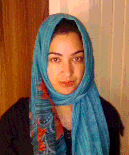Forms of tyranny in Indian Occupied Kashmir
Apr 28, 2022
First story
On September 17 2010, Indian Occupied Kashmir was brewing with tension. Indian forces had killed more that 140 youth in the age group of 20 to 30, this also included some children below the age of 10.
On one such day the death toll in the Kashmir Valley had risen by one more mark, but that death, unlike the rest, fell through the cracks. Only this time it struck off an infant, all of 40 days old. Irony is not lost upon the parents of the infant, who had lovingly named their daughter - Iram - which means happiness.
Iram was born when Kashmir was under severe curfew, which had persisted all throughout her living days. It is not hard for her parents to decide whether it was Iram’s struggle against her illness or the struggle they had to put up in front of the government's forces to let her visit the hospital, that took her life.
The day is clearly etched in the minds of the beleaguered parents Ghulam Mustafa Malik and Roma Malik.
Iram, 40-days-old then, was suffering from diarrhea and needed urgent medical attention. On being advised by their local physician, the Maliks had decided to take their daughter to G B Panth Hospital from their Eidgah residence, which falls at downtown Srinagar, summer capital of Kashmir..
“The baby had diarrhea, which is because of sepsis. Due to extreme dehydration, the kidneys lose water and they get defunct. When she was brought to me, she was choking and I referred her to G B Panth Hospital,” said Dr Lateef Ahmad Wani, a physician.
A neighbour, who owned an auto rickshaw, tried to help the Maliks. After driving down some distance, the auto rickshaw was stopped by the police at Gojwara. Wrangling was not an option. After much pleading, the police let them move forward only to be stopped again by the Central Reserve Police Force (CRPF) at Nowhatta.
The forces dragged Malik out of the auto rickshaw and started beating him black and blue. “They did not even spare my ailing wife whose shoulder was injured badly. Our injured driver moved back to our home but our ordeal continued,” Malik said.
Frightened, the driver had to drive fast to save himself from the wrath of the forces. “Once they finished beating me, they asked me to rush back. I had got some injuries on my shoulder, back and legs,” said Naseer Ahmad Khan, the auto driver.
Injured and humiliated, the family reached home.
The parents of the ailing infant were very anxious to get her to the hospital the very next day. Aware of the curfew restrictions, they started out in the wee hours of morning. But the CRPF and the police had cordoned off the area before sunrise. “It was only after 7.30 am, that I was allowed to move out of the house and as there was no transport we took to the SKIMS Soura hospital on foot,” said Malik.
Time was running out.
The two-hour journey to the hospital became a seven-and-a-half hour ordeal with the forces stopping them every few kilometers. Iram’s condition had worsened. “Blood was oozing out of my daughter's eyes. She was vomiting. None of this melted the hearts of the CRPF men, who did not show any mercy. It looked as if they were taking pleasure out of our plight,” said the teary-eyed mother. It was just 40 days ago that she had bore the pains of labour, giving birth to Iram.
Accompanied by her sister-in-law she braved all the pain to take the most distressing walk of her life.
At 3 pm, the family reached the hospital, the infant in her mother’s arms - by now, strangely calm. Even with a premonition of some tragedy, there were some vestiges of hope to urge the doctors for a check-up.
But as fate would have it, Iram was no more. She was declared ‘brought dead' by the doctors.
“If only the government's forces had let us. If only they had be humane. May Allah curse them,” said the lamenting mother.




